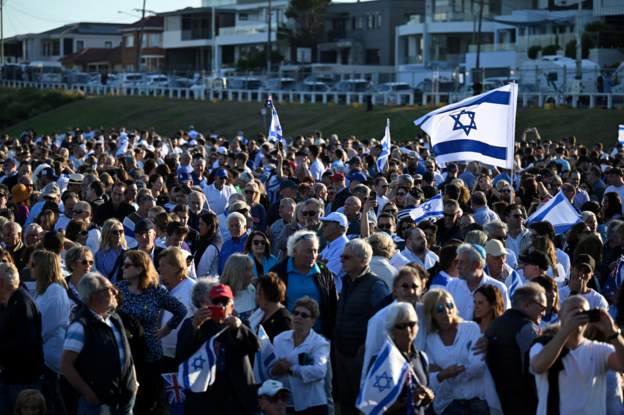Mahmoud Matar, the head of limb reconstruction surgery at a hospital in Gaza, is sending WhatsApp messages to the BBC, describing his situation as Israeli air bombardments continue.
“We are completely overwhelmed with the number of injuries and the number of dead,” he said.
“The dead bodies arrive in pieces. I am a surgeon and yet I cannot stomach the scene of death.”
“Families here have seen their homes demolished over their heads, killing all but maybe one or two people, who come to the hospital with terrible injuries.
“We all feel disabled – we cannot help people.”
He says at the moment he wishes he was not a doctor. “I cannot save my own family, my children are at home crying while I am on duty.”
Mahmoud says the hospital’s operating theatre is running non-stop and the hospital beds are full.
By his count, more than 10 ambulance staff have been killed or injured and he personally knows a gynaecologist and urologist who have died.

“The smell of death is all around now in Gaza. There is no water, there will be no electricity, and we have very bad network connection. I am currently looking for water to drink.”
The death toll in Israel from the Hamas attacks has reached 1,200 – while more than 1,000 people have been killed by Israeli air strikes on Gaza.
Gaza’s only power station has run out of fuel, after Israel announced it was cutting off energy supplies as well as food and water
It means Gazans will be relying on generators for electricity – if they have fuel to power them.
The Israeli military says hundreds of thousands of troops are near Gaza “ready to execute the mission we have been given”
Meanwhile, Israel’s PM Benjamin Netanyahu and opposition leader Benny Gantz have agreed to form an emergency government..
Netanyahu first invited the opposition leaders – Yair Lapid and Benny Gantz – to do so on Saturday after the surprise attack by Hamas.
The statement from Netanyahu and Gantz, chair of the National Unity party, released just now reads: “The two agreed on the establishment of an emergency government and a war management cabinet.
“A ‘war management cabinet’ will be established with three members: the prime minister, the defense minister and the chairman of the National Unity”.

There will also be two extra officials serving as observers in the war management cabinet.
“On behalf of the National Unity party a total of five ministers without a portfolio will be added to the political-security cabinet (with one of them as an observer): Benny Gantz, Gideon Sa’ar, Gadi Eisenkot and two other ministers. This is for the duration of the war.”
Gaza resident Kamal Mashharawi spoke to the BBC a short time ago from a basement shelter with 45 people in.
“It’s very difficult – we don’t have water, we don’t have internet, we don’t have electricity,” he says.
His children are injured and his lungs hurt. Kamal has lost a few members of his family but is unable to contact the others because the internet is out.
“We tried to make road trips to the nearest supermarket but it was unsafe because of the explosions,” he tells Newshour.
On the phone, Kamal says his heart is beating as he looks for the next strike, thinking “am I the next person?”
“I don’t think civilians deserve to die – they should be left out of the conflict,” he says.
“I can’t really blame Hamas, I can’t really blame Israel, but I say that we civilians are affected.
“We are the people who are not part of this conflict and we’re paying it off.”

